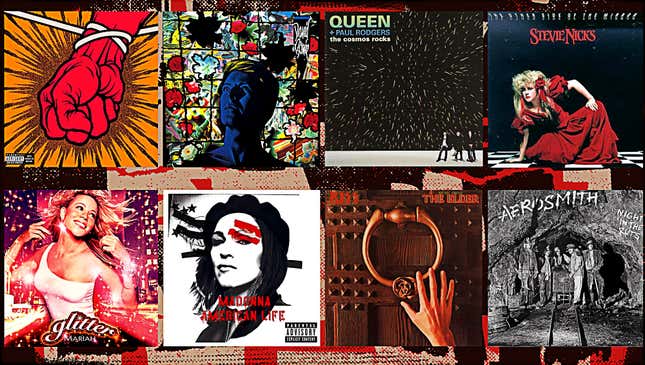
It happens, even to the best of them: Madonna, U2, David Bowie, Paul McCartney, Queen. Despite all their good intentions, even great musicians can deliver a dud from time to time. Usually, major acts have the instinct and craft to polish an average song until it’s listenable, so mediocre albums are a dime a dozen. What’s unusual are the records where an artist finds all their old tricks failing them, whether it’s due to personal problems, a poor choice of collaborators, or a misguided concept. Misfires like that are so rare that they wind up being memorable and worth noting—perhaps even celebrating. The albums that follow may not be a comprehensive list of the worst records ever made. Rather, it’s a collection of 40 albums that made an indelible impression by barreling the wrong way down the highway.